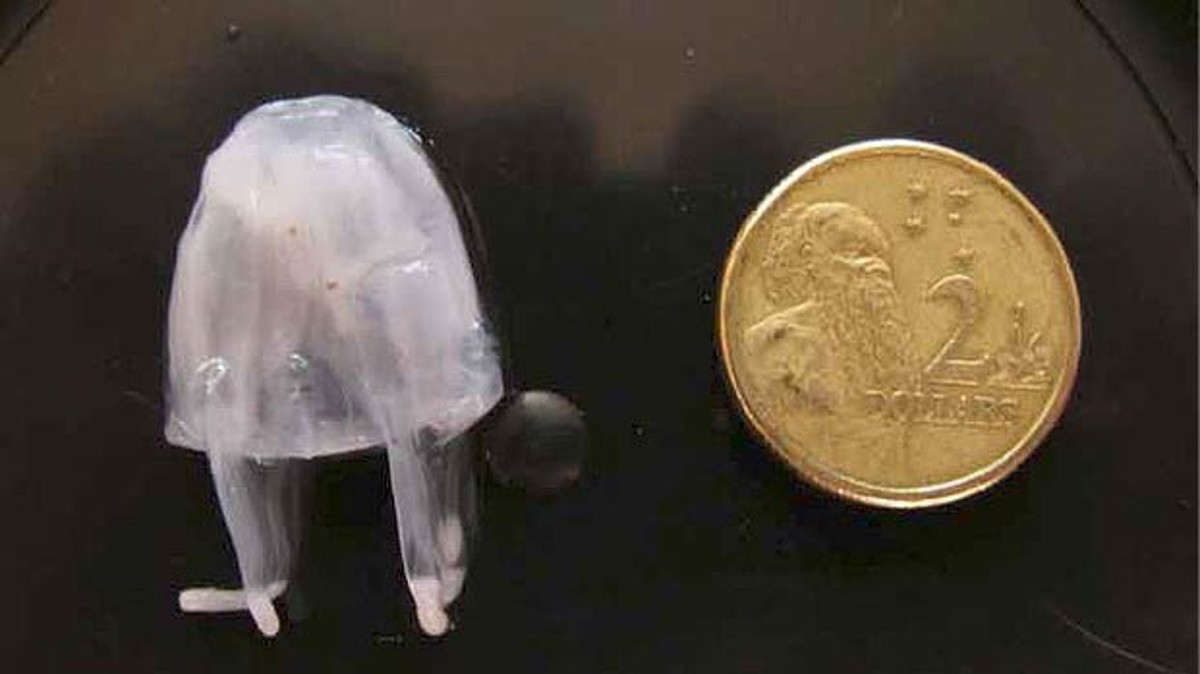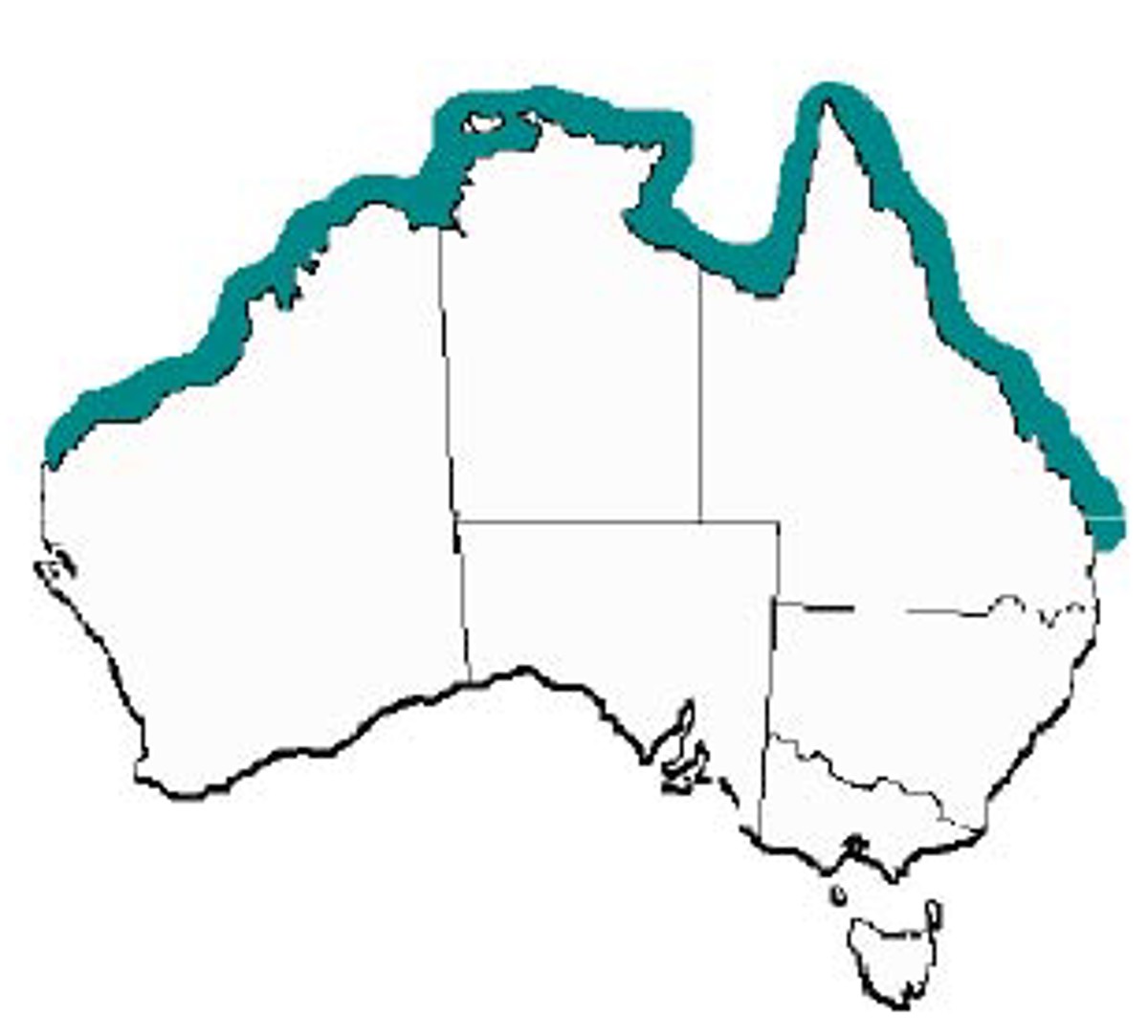Irukandji jellyfish awareness (Australia)
- Safety Flash
- Published on 17 October 2013
- Generated on 15 February 2026
- IMCA SF 16/13
- 3 minute read
Jump to:
A Member has asked IMCA to raise awareness amongst divers and dive supervisors of the presence of Irukandji Jellyfish in certain Australian waters.
What happened?
Members are encouraged to pass this information so that personnel are aware of the presence of Irukandji Jellyfish and if encountered, to recognise the signs and symptoms of a sting and the initial first aid treatment.
There are at least 10 species of Irukandji known, ranging from as small as 1 cm to over 10 cm in diameter; all are transparent and virtually invisible in water which makes them difficult for swimmers and/or divers to notice. Irukandji are most likely to be found in Australian tropical waters (see map).
The normal Irukandji season begins from November through to May.

Irukandji jellyfish

areas in which Irukandji jellyfish are most likely to be found
Signs and Symptoms: The initial minor skin sting is followed 5-40 min later by severe generalised muscular pain, headache, vomiting and sweating. The sting from some species can cause very high blood pressure or have effects on the heart which may be life threatening. These combined symptoms are sometimes referred to as ‘Irukandji Syndrome’.
First Aid: As with all tropical Jellyfish stings the victim should be doused with vinegar.
- Call for help or send someone for help.
- Treat the victim (provide emergency CPR if necessary); apply 100% oxygen if patient is at an ambient pressure where it is safe to do so.
- Treat the sting (flood with vinegar), do not rub or apply freshwater.
- Seek medical assistance (transport to hospital).
Further notes:
Particular care is to be taken when dressing the diver to ensure all exposed skin is covered, and any potential exposure is considered, for example taping gloves to sleeves and exposed skin around the neck area.Often the greatest threat is not to the diver but to tenders on deck handling divers’ umbilicals and associated lines that have been submerged.
Great care should be taken by topside personnel, paying particular attention to covering exposed skin by wearing gloves and long sleeve coveralls at all times.Ensure that topside personnel working in such waters look for the presence of Irukandji and other marine stingers on equipment and wash down equipment thoroughly.
Ensure all personnel are familiar with the location of vinegar and associated first aid equipment, and its use.If hot water suits are being used in tropical waters (for example, by saturation divers), there should be adequate filtration of water intakes in place to prevent jellyfish, or parts of jellyfish, from being drawn into the hot water suit intakes and then being pumped down to the divers’ hot water suits. Sufficient PPE to prevent jellyfish stings should be worn by anyone required to clean such water intake filters.
IMCA Safety Flashes summarise key safety matters and incidents, allowing lessons to be more easily learnt for the benefit of the entire offshore industry.
The effectiveness of the IMCA Safety Flash system depends on the industry sharing information and so avoiding repeat incidents. Incidents are classified according to IOGP's Life Saving Rules.
All information is anonymised or sanitised, as appropriate, and warnings for graphic content included where possible.
IMCA makes every effort to ensure both the accuracy and reliability of the information shared, but is not be liable for any guidance and/or recommendation and/or statement herein contained.
The information contained in this document does not fulfil or replace any individual's or Member's legal, regulatory or other duties or obligations in respect of their operations. Individuals and Members remain solely responsible for the safe, lawful and proper conduct of their operations.
Share your safety incidents with IMCA online. Sign-up to receive Safety Flashes straight to your email.